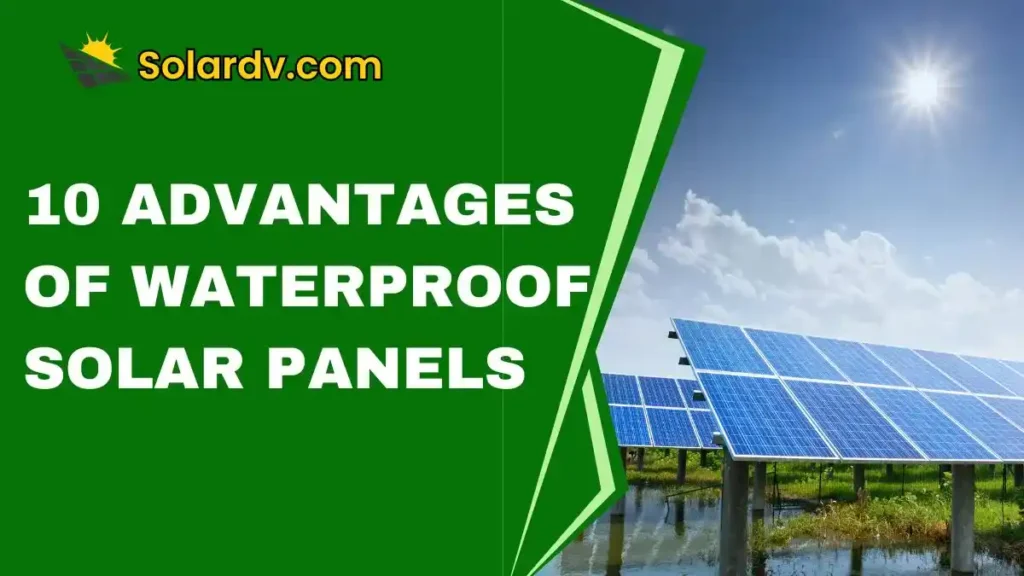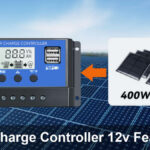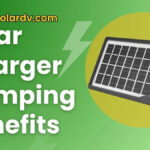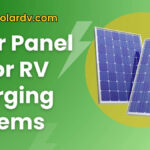Solar panels are designed to harness the power of the sun, but what happens when they face rain or water exposure? They are built with protective materials and coatings that prevent water from seeping into the internal components. This feature is essential for maintaining the performance and durability of solar panels Waterproof, especially in areas prone to heavy rainfall or snow.
Best Solar Panel Waterproof
When selecting the best solar panel waterproof options, it’s essential to choose ones that can handle not just the usual weather changes but also resist water damage. Some top options to consider include:
- Renogy 100 Watt 12 Volt Solar Panel: Known for its durable aluminum frame and IP65-rated waterproof junction box, this panel can withstand harsh weather, including rain.
- SunPower 110 Watt Flexible Solar Panel: Lightweight, flexible, and waterproof, making it ideal for mobile installations such as RVs and boats.
- Goal Zero Boulder 100 Briefcase: With a rugged design and tempered glass, this waterproof solar panel offers excellent durability and is perfect for outdoor adventures.
- LG NeON 2 Solar Panel: This highly efficient panel is equipped with water-resistant technology, ensuring durability in various climates.
- HQST 100 Watt Polycrystalline Solar Panel: Known for its water-resistant capabilities and reliable performance, this panel is ideal for residential or small commercial installations.
10 Advantages of Waterproof Solar Panels
Waterproof solar panels offer many advantages beyond just keeping the water out. Here’s a look at the top 10 reasons why waterproofing your solar panels is a smart move:

- Increased Longevity: Waterproof panels are less likely to suffer from corrosion or short-circuiting, allowing them to last longer.
- Durability in Harsh Conditions: Waterproof panels can withstand various weather conditions, from heavy rain to snow.
- Improved Efficiency: With no water damage, waterproof panels maintain their efficiency and continue to generate electricity reliably.
- Minimal Maintenance: Since water won’t penetrate the panel’s internal components, these panels require less maintenance compared to regular panels.
- Cost-Effectiveness: While they may come with a slightly higher price tag, the long-term savings on repairs make waterproof panels cost-effective.
- Safe Operation: Waterproof panels prevent water from reaching electrical components, reducing the risk of short circuits or electrical fires.
- Environmental Protection: They are designed to be resistant to dust, debris, and water, ensuring better overall environmental protection.
- Better Performance in Humid Areas: Waterproof solar panels are essential in regions with high humidity, where water damage can be a common problem.
- Versatile Applications: These panels can be used in various environments, from residential rooftops to boats and RVs.
- Aesthetic Benefits: Waterproofing technologies often lead to sleeker, more modern designs that look great on homes or commercial buildings.
How to Make Solar Panels Waterproof
While most solar panels are built with a degree of water resistance, extra steps can be taken to ensure they remain waterproof, especially in areas that experience heavy rainfall or high humidity. Here’s a step-by-step guide on how to make your solar panels as waterproof as possible:
- Install Panels with a Tilt: Ensure that your solar panels are mounted at an angle to allow water to run off efficiently. Standing water can cause damage over time.
- Use a Protective Sealant: Apply a waterproof sealant around the edges and joints of the solar panels. This will prevent water from seeping into areas where the protective layers might be weak.
- Add a Waterproof Junction Box: Opt for a junction box with a high IP rating, such as IP65 or higher, to ensure that electrical components are protected from water ingress.
- Use Weatherproof Cables: Make sure the wiring for your solar panels is properly insulated and waterproofed to prevent short circuits.
- Monitor Regularly: Check your panels regularly for any signs of water damage or wear, especially after heavy storms.
Yes, while most solar panels are designed to be water-resistant, water can cause damage if it enters through damaged seals or faulty wiring. Proper installation and maintenance are key to preventing water-related issues.
Absolutely. Solar panels are designed to work in various weather conditions, including rain. Although rain reduces the amount of sunlight reaching the panels, it can help clean dust and debris, making them more efficient afterward.
Yes, solar panels can be made waterproof, especially with modern manufacturing techniques. Most high-quality panels come with IP ratings that indicate their water resistance level. Panels with ratings like IP65 or IP67 offer robust protection against water ingress.
Conclusion
Ensuring your solar panel waterproof system is a crucial step in maximizing its longevity and efficiency. Waterproof solar panels offer a range of benefits, from increased durability to minimal maintenance. By choosing the best waterproof options and taking the necessary steps to protect your panels from water, you can enjoy long-lasting, eco-friendly energy production.










